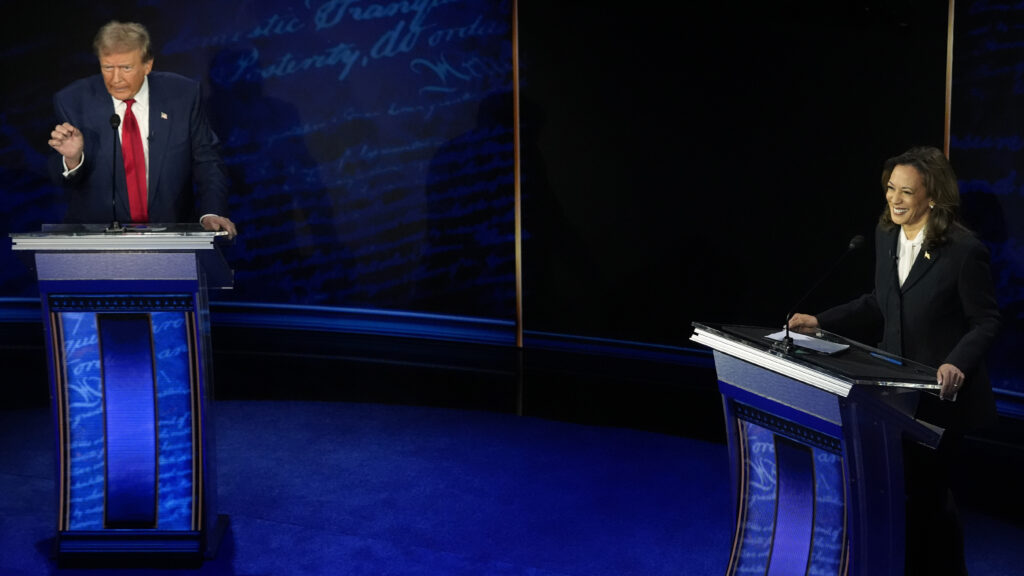WASHINGTON — Former President Trump is still struggling to land on an abortion answer that will satisfy both moderate voters and his party’s anti-abortion contingent, and Vice President Harris hammered him for it at Tuesday night’s debate.
In Trump’s telling, the Supreme Court’s decision overturning Roe v. Wade was popular across the nation. But Trump also doesn’t want to be associated with many Republicans’ longtime plans for a national ban, reflecting the political quagmire the issue has become for the GOP.
advertisement
“I’m not signing a ban, and there’s no reason to sign a ban because we’ve gotten what everybody wanted,” Trump said during his first debate against Harris. The Democratic candidate hammered him on his shifting stance while highlighting conservative groups’ anti-abortion proposals — leading Trump to once again throw distance between himself and a pack of his former officials.
The GOP candidate stumbled when parrying her attacks. He incorrectly characterized the Supreme Court decision that overturned Roe v. Wade, saying it came through “the genius and heart and strength of six Supreme Court justices” (it was five; Chief Justice John Roberts dissented). Trump also distanced himself from his running mate, Sen. JD Vance, when asked about Vance’s remarks that Trump would veto a national abortion ban, saying he “didn’t discuss it with JD.”
Trump maintained, as he did in the previous debate and numerous campaign stops, that “every legal scholar” wanted to see national protections for abortion turned back to states. But while GOP-led legislatures have approved restrictions, voters have not. Most oppose national bans and believe the Supreme Court made the wrong decision, according to national polling.
advertisement
Harris appealed to voters to empathize with people seeking abortions in traumatic circumstances, or to protect their health. While Trump has said he supports allowing abortions in the case of rape, incest and jeopardy to life, some state bans do not include these exceptions, and can penalize practitioners who make decisions in the moment.
“Understand what that means. A survivor of a crime, a violation to their body, does not have the right to make a decision about what happens to their body next,” Harris said. “Pregnant women who want to carry a pregnancy to term, suffering from a miscarriage, being denied care in an emergency room because the health care providers are afraid they might go to jail.”
In the months after the 2022 decision overturning Roe, five states voted on ballot measures that codified abortion rights or rejected restrictions. Ohio last year voted to protect abortion rights and Virginians flipped legislative control to Democrats, effectively ending their Republican governor’s plans to impose state restrictions.
Another 10 states will vote on abortion protections in November’s elections. Those include Trump’s home state of Florida, where voters will decide on language protecting abortion up to viability, which would reverse a current ban on the procedure after six weeks of pregnancy.
The former president previously has said publicly that a six-week ban is too restrictive.
But in recent days, Trump said he’d vote against extending abortion protections in Florida.
Harris, between comments slamming the former president’s shifting stance, nodded to moderate voters that Democrats hope to capture on this issue.
“One does not have to abandon their faith or deeply held beliefs to agree [that] the government and Donald Trump certainly should not be telling a woman what to do with her body,” she said.

